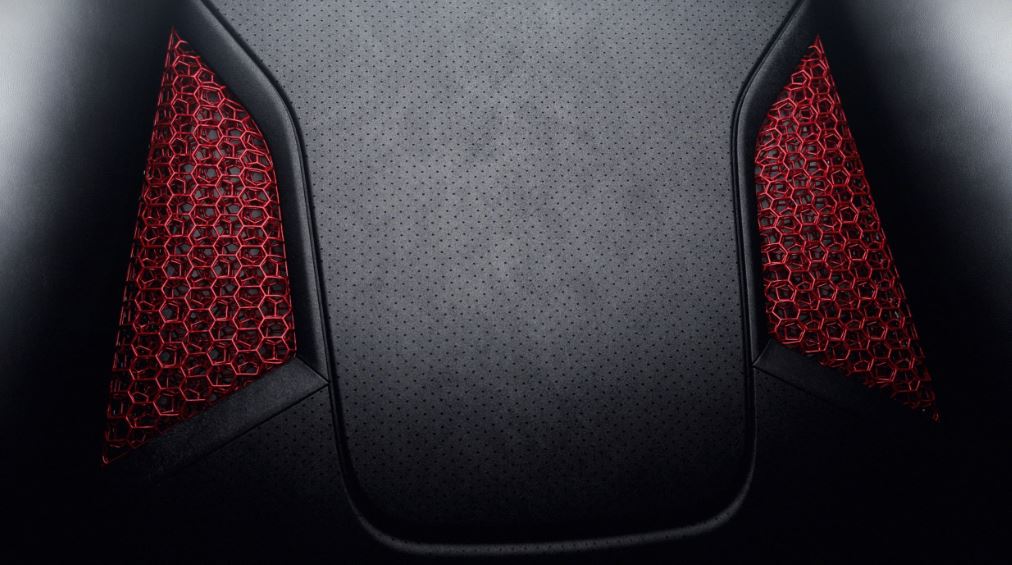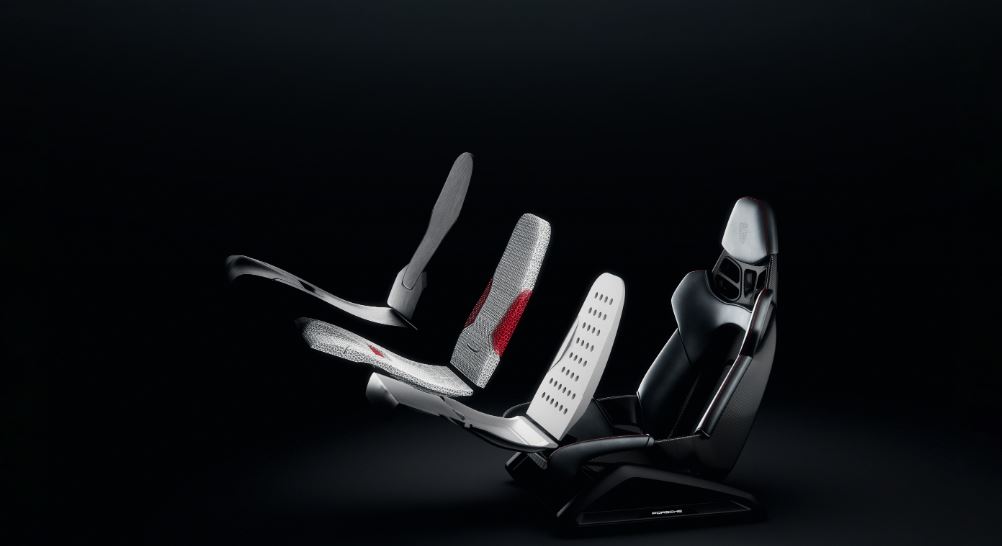Porsche, known for its high-performance sports cars, has announced the development of its new 3D printed personalized bucket seats. The “bodyform full bucket seat” will initially be limited to 40 prototypes for use on European race tracks as early as May 2020, with customer feedback being used to develop the final street-legal models for mid 2021.
Drawing inspiration from motorsport
The new seats-for-one will see their central seat and backrest cushion sections partially 3D printed. This will give prospective customers the option to choose between three firmness levels: hard, medium and soft. In addition to the ergonomic fit, the seats will feature lightweight materials, improved personal comfort, and passive climate control. With its personalized seating, the German manufacturer aims to draw a connection with the motorsport sector, where customized driver-specific seat fitting is customary.

“The seat is the interface between the human and the vehicle, and is thus important for precise, sporty handling. That’s why personalised seat shells customised for the driver have been standard in race cars for a long time now,” says Michael Steiner, Member of the Executive Board for Research and Development at Porsche.
He adds, “With the ‘3D-printed bodyform full-bucket seat’, we’re once again giving series-production customers the opportunity to experience technology carried over from motor sports.”
The sandwich construction
The new bucket seat is based on Porsche’s existing driver seat, which comprises a sandwich construction. The base support is made of expanded polypropylene (EPP). This base is fused to a breathable comfort layer – a mixture of polyurethane-based materials fabricated via 3D printing. The exterior skin of the seat is made of Racetex, a waterproof but breathable material that features a specific perforation pattern for passive climate control. The seat will also have a set of window panels to provide a view of the 3D printed lattice structure within, giving the bucket seat a distinct high-performance appearance.

Porsche will initially be mounting the bucket seat prototypes into its 911 and 718 ranges, along with a six-point seat belt typically found in race cars. The company intends to offer a range of colours in the future, along with body contours specific to individual customers given there is enough demand for it.
Although 3D printing is yet to be widely adopted in the automotive sector, manufacturers have already begun to utilize additive manufacturing to produce non-critical components. Triple Eight Race Engineering, an Australian motor racing team, has previously used HP’s MJF technology to produce customized grips for its race cars’ steering wheels. The steering wheel grips were designed according to the driver’s anatomy, facilitating precise steering inputs as well as enhanced comfort. Elsewhere, in Germany, Volkswagen has 3D printed at least 10,000 metal parts for use in its vehicles – also using HP’s additive manufacturing technology.
The nominations for the 2020 3D Printing Industry Awards are now open. Who do you think should make the shortlists for this year’s show? Have your say now.
Subscribe to the 3D Printing Industry newsletter for the latest news in additive manufacturing. You can also stay connected by following us on Twitter and liking us on Facebook.
Looking for a career in additive manufacturing? Visit 3D Printing Jobs for a selection of roles in the industry.
Featured image shows an exploded view of the 3D printed personalized bucket seat. Image via Porsche.
